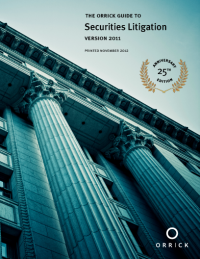We previously discussed how important a special negotiating committee of independent directors can be when defending against stockholder challenges to change-of-control transactions – particularly for going private transactions with controlling stockholders, which usually require boards to be able to prove the “entire fairness” of the transaction. This week, in an important decision that may reach the Delaware Supreme Court, In re MFW Shareholders Litigation, the Delaware Court of Chancery again affirmed the importance of special committees in those circumstances, and offered a road map to companies and controlling stockholders on how to structure going private transactions.
Nearly two decades ago, in Kahn v. Lynch, the Delaware Supreme Court held that where (1) a special committee of independent directors or (2) a majority of the non-controlling stockholders approves a merger with a controlling stockholder, it shifts the burden of proving the entire fairness of the transaction from the defendants to the stockholder challenging the transaction. Last year, in Americas Mining Corp. v. Theriault, the Delaware Supreme Court reiterated that the use of a properly functioning special committee of independent directors is an integral part of the best practices that are used to establish the entire fairness of a merger with a controlling stockholder. READ MORE







